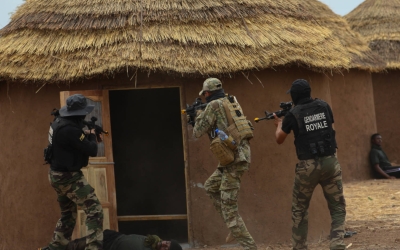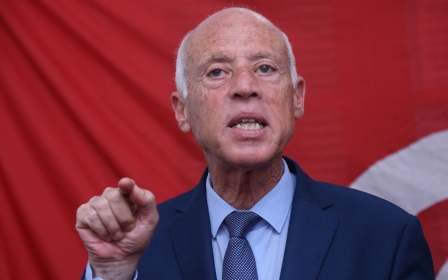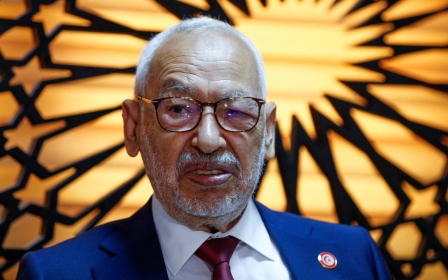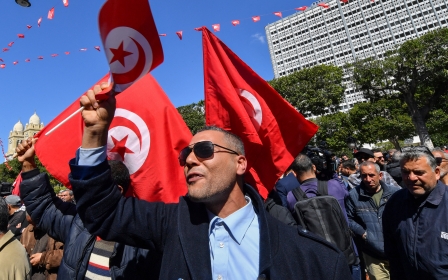Rached Ghannouchi arrest 'tragic loss' for Tunisia and region, academics say
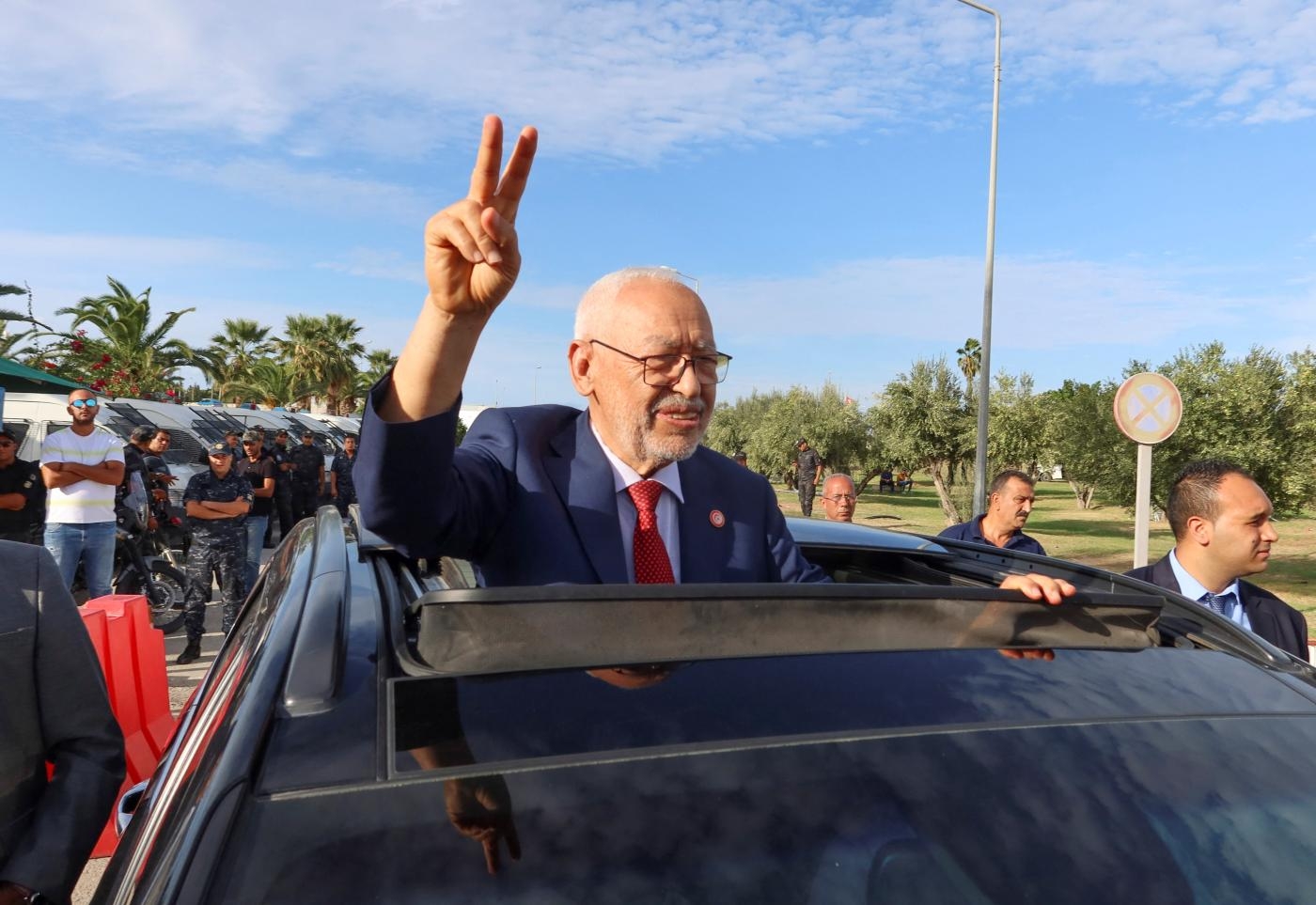
Academics in Europe and North America have called for the release of Rached Ghannouchi and all political prisoners in Tunisia, amid what they describe as a "fierce onslaught" against the North African country’s democracy.
In a letter viewed by Middle East Eye, academics - including from the universities of Oxford, Harvard, and Columbia - warned that Tunisia was on the verge of returning to the “darkest eras of dictatorship” after the hard-won gains of the 2011 Arab Spring. By the time of publishing, the letter had 148 signatures.
Signatories include Professors Noam Chomsky, Charles Taylor, John Esposito, Francis Fukuyama, Anne Norton, Philippe Schmitter, Clement H. Moore, Olivier Roy, Yvonne Haddad, Robin Niblett, Donald L. Horowitz, Francois Burgat, Jocelyne Cesari, Larry Diamond, Owen Fiss, Anthony Kronman, Marwan Muasher, John Entelis, Burhan Ghalioun, Ellen Lust, Khaled Abou El Fadl, John Keane and Charles Tripp among dozens of others.
“While opposition leaders make progress towards presenting a united, diverse and broad front for the restoration of democracy, they are facing a wide campaign of arbitrary arrests, politically motivated charges, demonization and threats,” they wrote.
New MEE newsletter: Jerusalem Dispatch
Sign up to get the latest insights and analysis on Israel-Palestine, alongside Turkey Unpacked and other MEE newsletters
“All believers in the shared values of freedom and democracy around the world must stand by them in their struggle for freedom,” the authors added.
The letter comes after Ghannouchi was sentenced in absentia to a year in prison on 15 May, in the most high-profile escalation of an authoritarian crackdown by President Kais Saied.
Ghannouchi, the leader of Tunisia’s main opposition party, Ennahda, was arrested last month on the orders of a Tunisian investigative judge and was under investigation by authorities for money laundering and incitement to violence, charges he denies and that his supporters claim were politically motivated.
In a pre-recorded video message published on his Facebook page last month, Ghannouchi said: "We are facing another episode of political targeting by judicial means."
"We, the undersigned, academics and public figures, express our solidarity with Mr Ghannouchi and all Tunisian democrats unjustly arrested or prosecuted, and call on the Tunisian authorities to release all political prisoners in Tunisia."
“The charges against [Ghannouchi] and other opposition leaders are a desperate attempt to eliminate the leading voices of opposition to the destruction of democracy in Tunisia and distract attention from the deepening political, economic and social crises in the country,” the letter said.
Saied, a former constitutional law professor, was democratically elected president in 2019 with the vow to clean up corruption and cut through political chaos. However, in 2021 he shuttered parliament and began consolidating power. He arrested journalists, activists and political opponents in what Amnesty International has decried as “a politically motivated witch hunt”.
'Tragic loss'
Ghannouchi was the democratically elected speaker of parliament that Saied unconstitutionally dissolved. He headed a moderate Islamist party that looked to build consensus with Tunisia’s secular parties in government.
“Mr Ghannouchi is recognised as one of the most prominent advocates of democracy in the Arab world and of Muslim democracy,” the signatories said.
"Depriving Tunisia, the region and the world of one of the most prominent voices of moderation and democracy, would be a tragic loss far beyond Tunisia’s borders,” they added.
As a fiery populist, Saied billed himself as an outsider who could take on Tunisia’s political parties which oversaw a growth in democracy but also mounting economic challenges.
Despite promises to correct Tunisia’s downward economic trajectory, Saied has overseen skyrocketing inflation and shortages of basic goods. Early this year, he rejected an IMF loan that economists say is necessary to prevent the country’s economic collapse, claiming the lender was issuing “diktats from abroad”.
Saeid’s dismantling of democracy has frustrated Washington and the European Union. However, while they have criticised his crackdown on opponents, they have taken little direct action against Saied or his government.
MEE previously reported how Tunisia’s defence ties with the US were enduring despite some cuts in military aid. This year, Tunisia participated in US-led military exercises in Africa and is sending troops to the US for training.
The Tunisia military, which has moved closer to Saied and dispatched tanks to close parliament on his orders, is also preparing to attend a US National Guard and foreign military partnership anniversary event later this year in Washington.
This article is available in French on Middle East Eye French edition.
Middle East Eye delivers independent and unrivalled coverage and analysis of the Middle East, North Africa and beyond. To learn more about republishing this content and the associated fees, please fill out this form. More about MEE can be found here.


